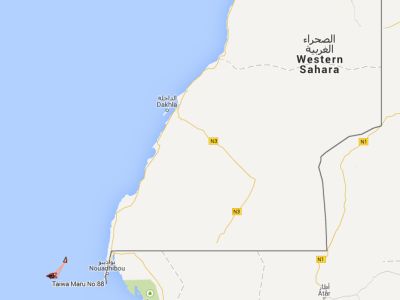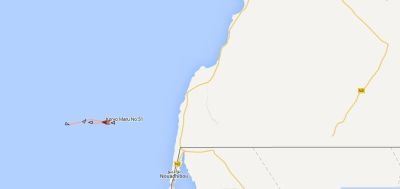
Three Japanese fishing vessels have the last 48 hours been fishing in Saharawi waters. WSRW has asked the Japanese government to intervene.

In a letter to the Japanese government today, Western Sahara Resource Watch issues a call to "to end the fishing in which they have been engaged".
The three longliner fishing vessels 'Koryo Maru No. 51' (IMO number 8915990), 'Shoei Maru No. 7' (IMO number 9120023) and Taiwa Maru No. 88' (IMO number 9053488) were all seen on the 16 and 17 of October to fish in the waters of Western Sahara.
The vessels are there of one of two reasons: either on a licence signed by the Moroccan government covering a territory which is not part of Morocco, or without such a licence - meaning that the the vessels fish there even without the occupying power's approval or intervention.
In either case, the presence of Japanese fishing vessels in the territory takes place in violation of the rights of the owners of the fish; the people of Western Sahara, and in violation of international law. No state recognises Moroccan claims to the territory.
Half of the Saharawi people, the sole inhabitants of the territory prior to the Moroccan occupation, have fled their homeland, and live now as refugees in the Algerian desert.
The presence of Japanese fishing vessels in the waters offshore Western Sahara illustrates the poor environmental control by the Moroccan government in the waters they illegally occupy.

EU-Morocco Statement: autonomy without self-determination, law without lawfulness
A joint statement that came out of last week’s EU-Morocco Association Council asks readers to believe in a fiction: that an undefined autonomy plan imposed by an occupying power can satisfy the right to self-determination, and that respect for international law can coexist with the systematic ignoring of the EU’s own highest court.
Greenland Yes, Western Sahara No? The EU’s self-determination test
As the European Union rightly rallies behind Greenlanders’ right to decide their own future in the face of external pressure, a test of the EU’s real commitment to self-determination is quietly unfolding in Brussels.
The CJEU Court Cases
Keeping track of the many legal proceedings relating to Western Sahara is not easy. This page offers an overview of the cases concerning the territory that have been before the Court of Justice of the European Union (CJEU).
New report: Certified occupation
International certification standards embellish Morocco’s controversial trade with fisheries and agricultural products in occupied Western Sahara, new report documents.



